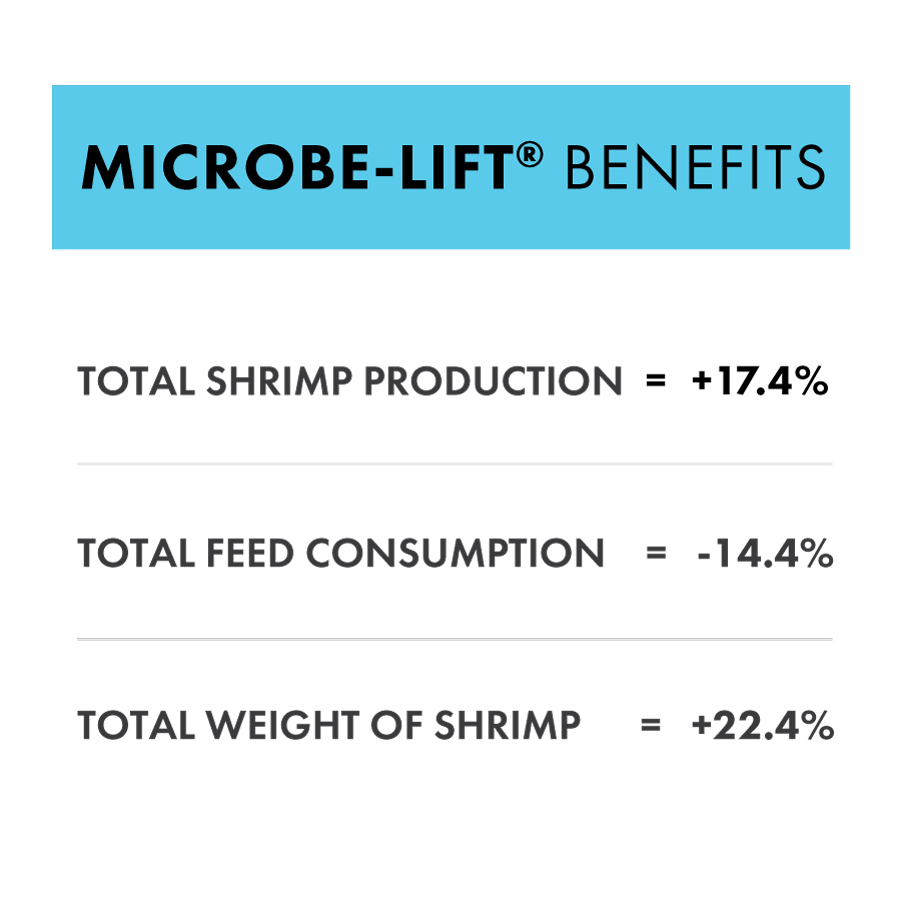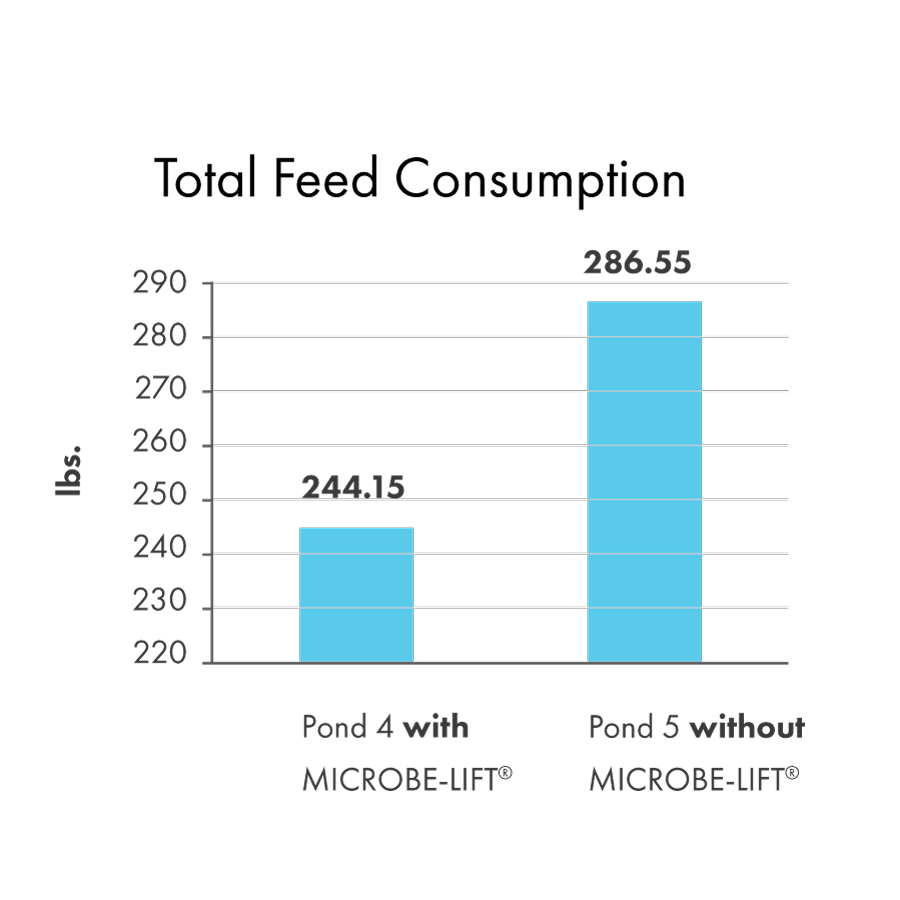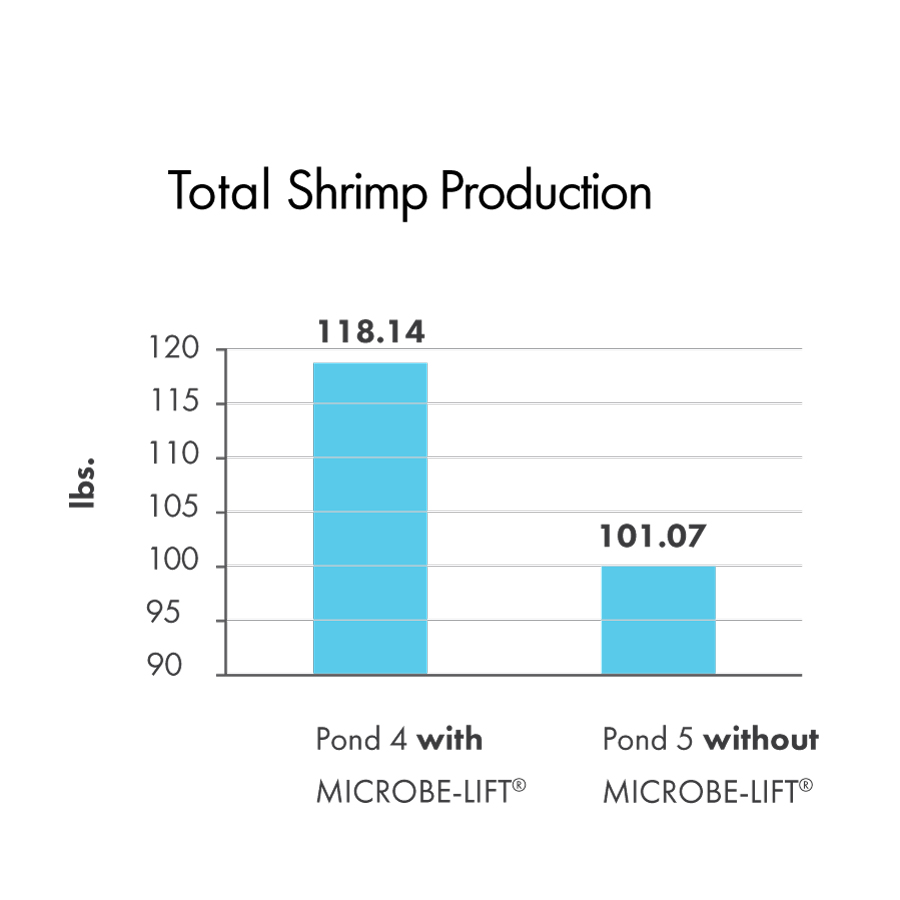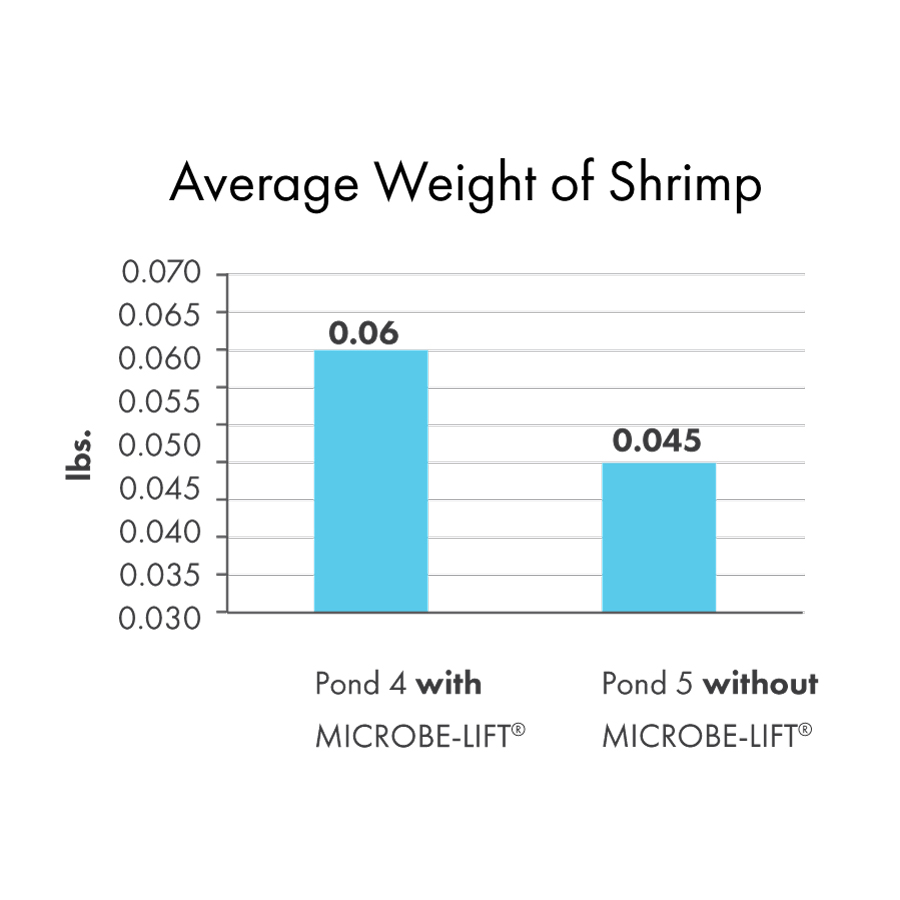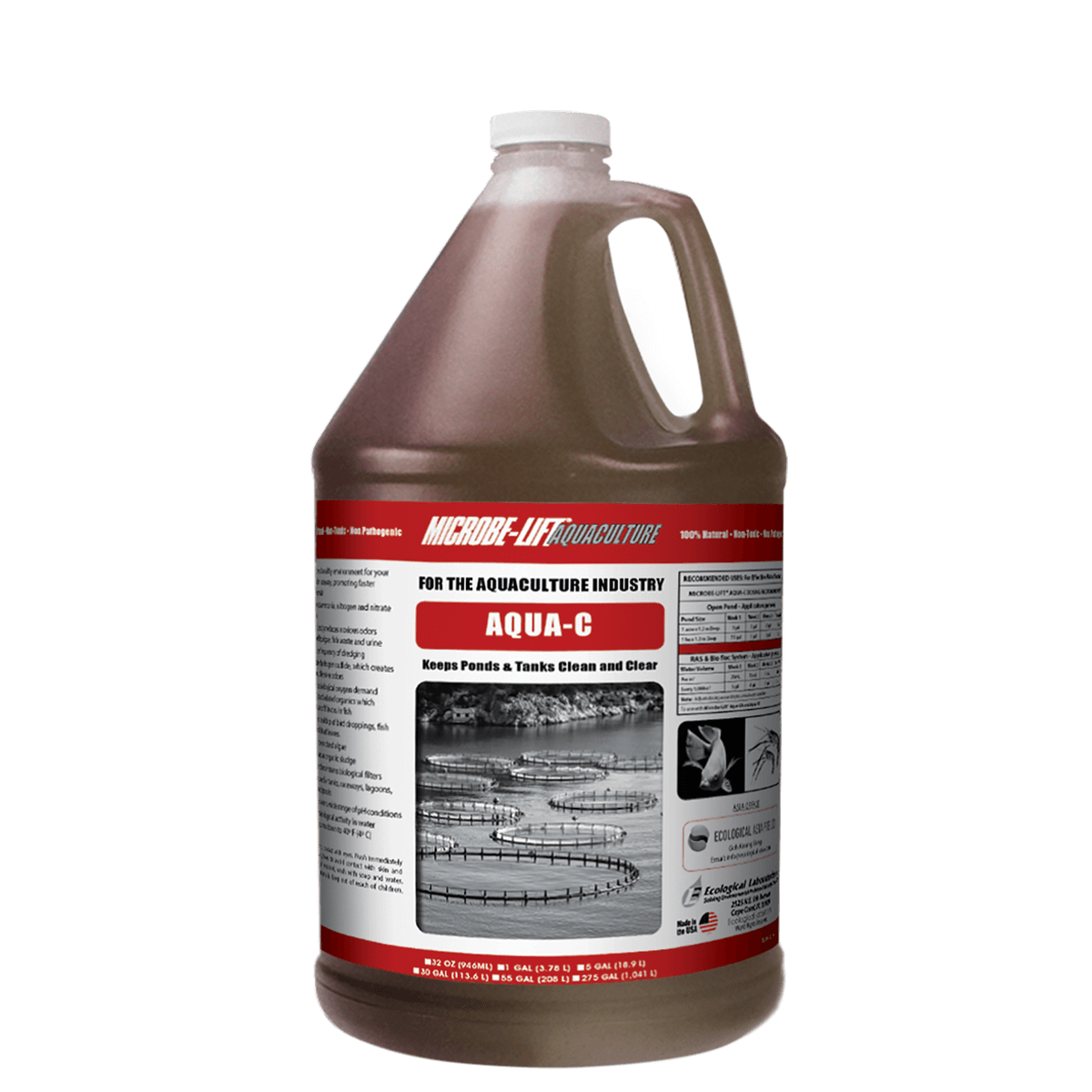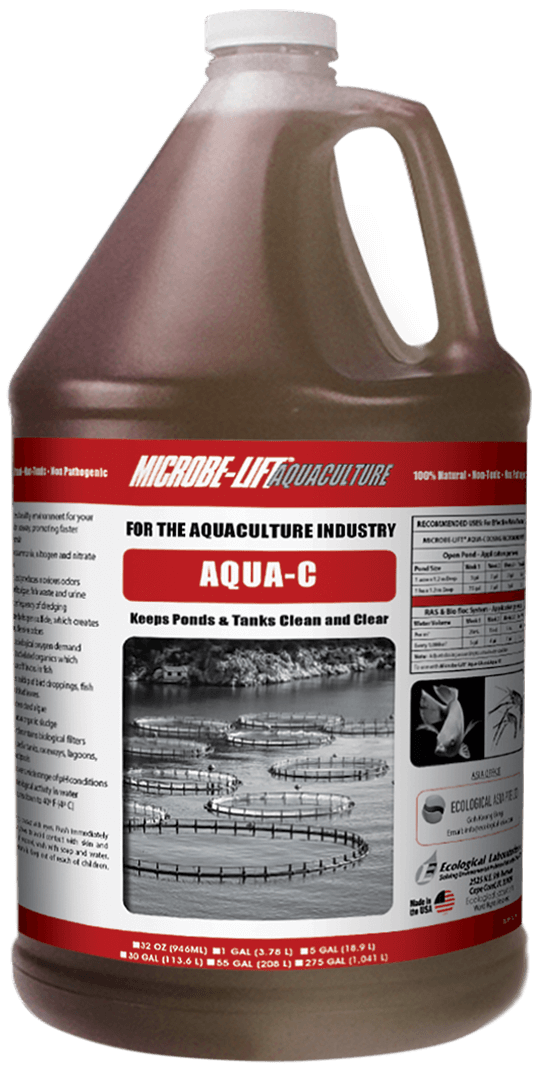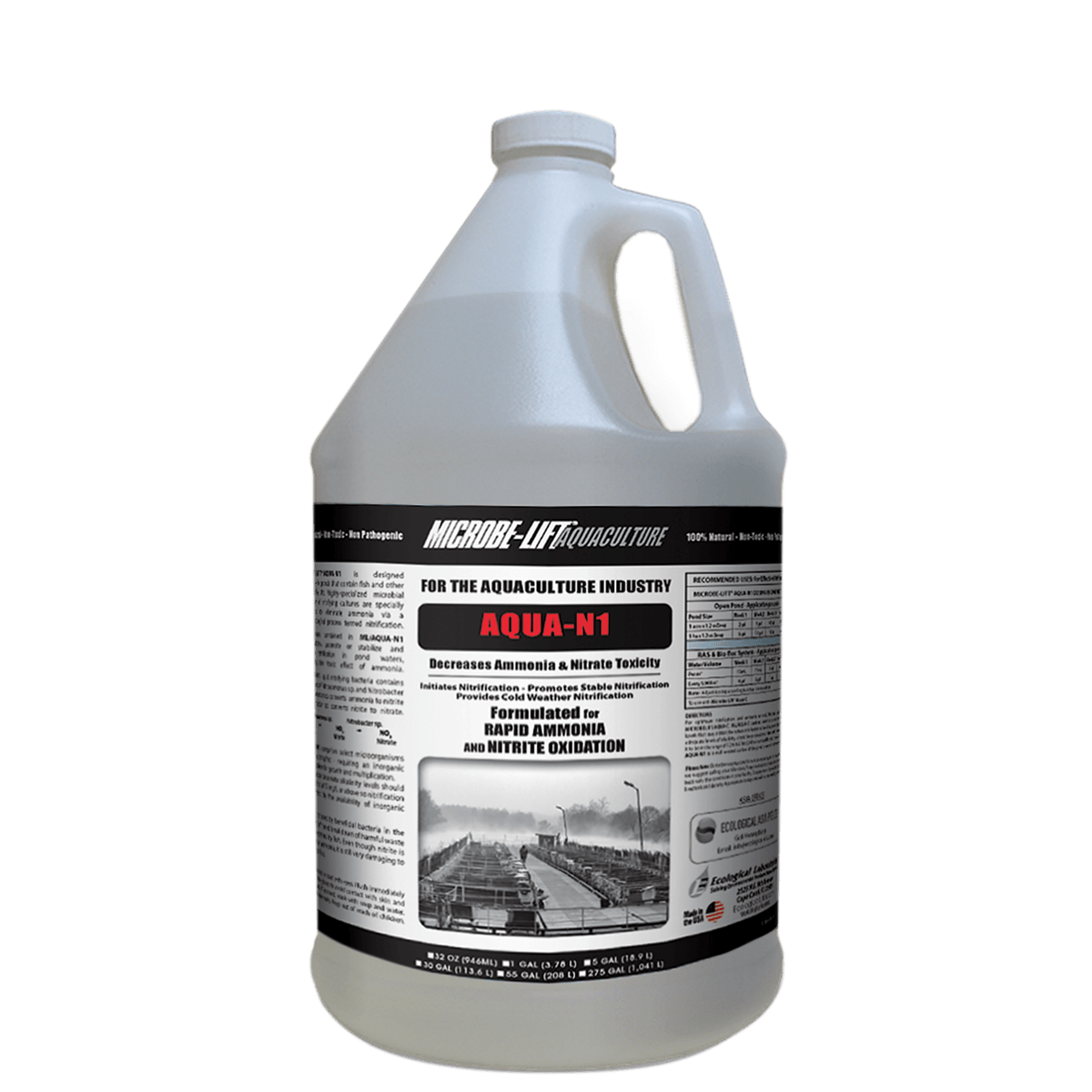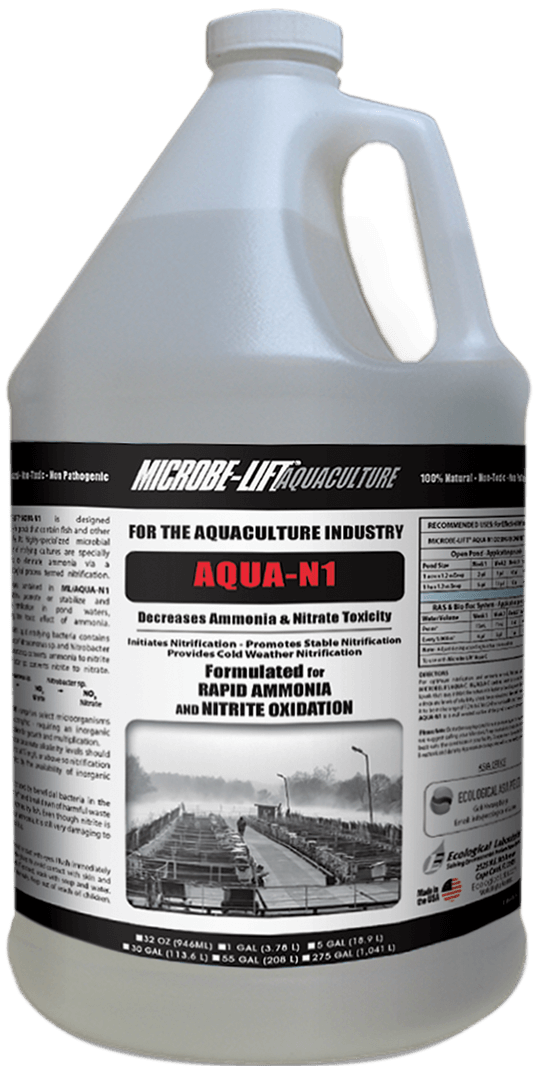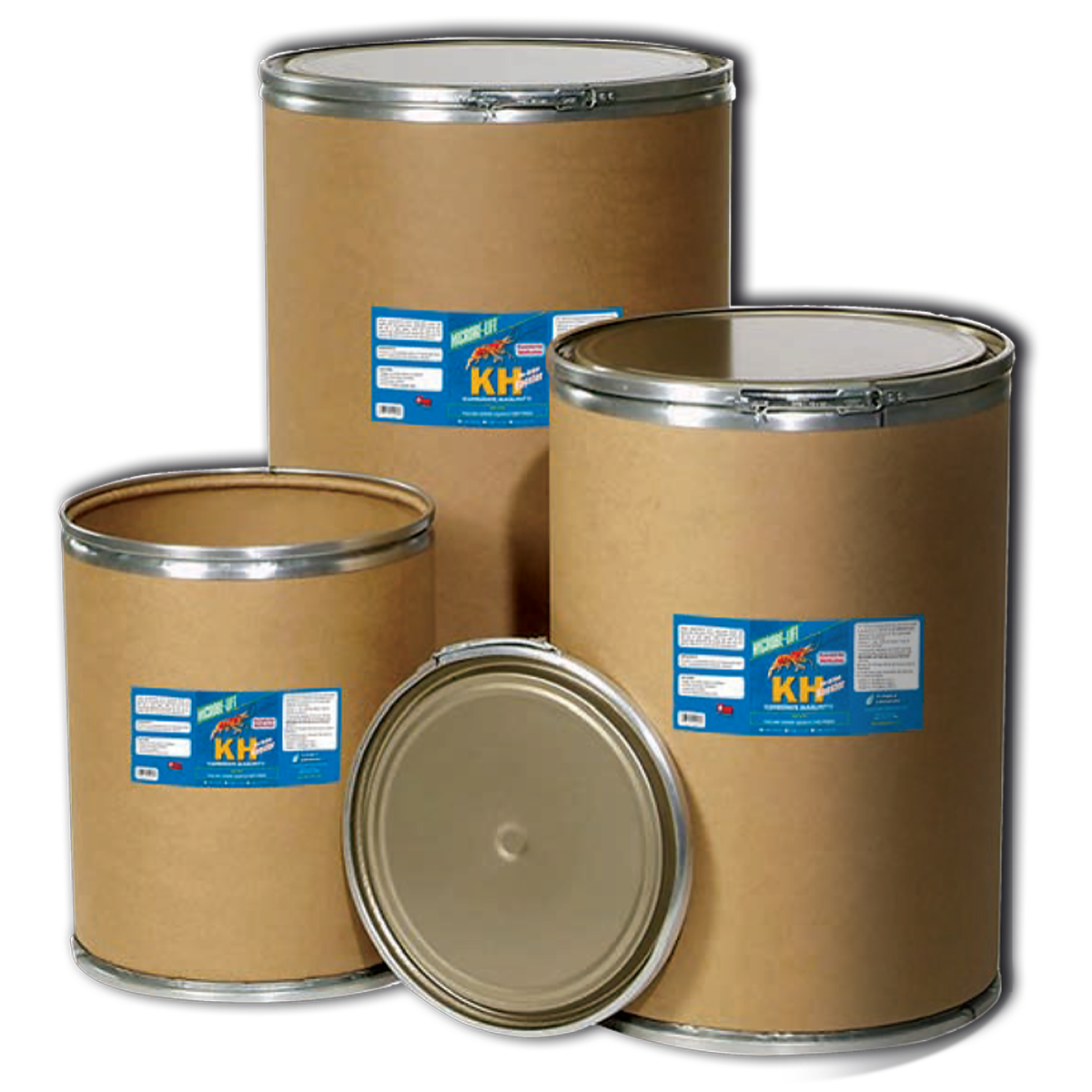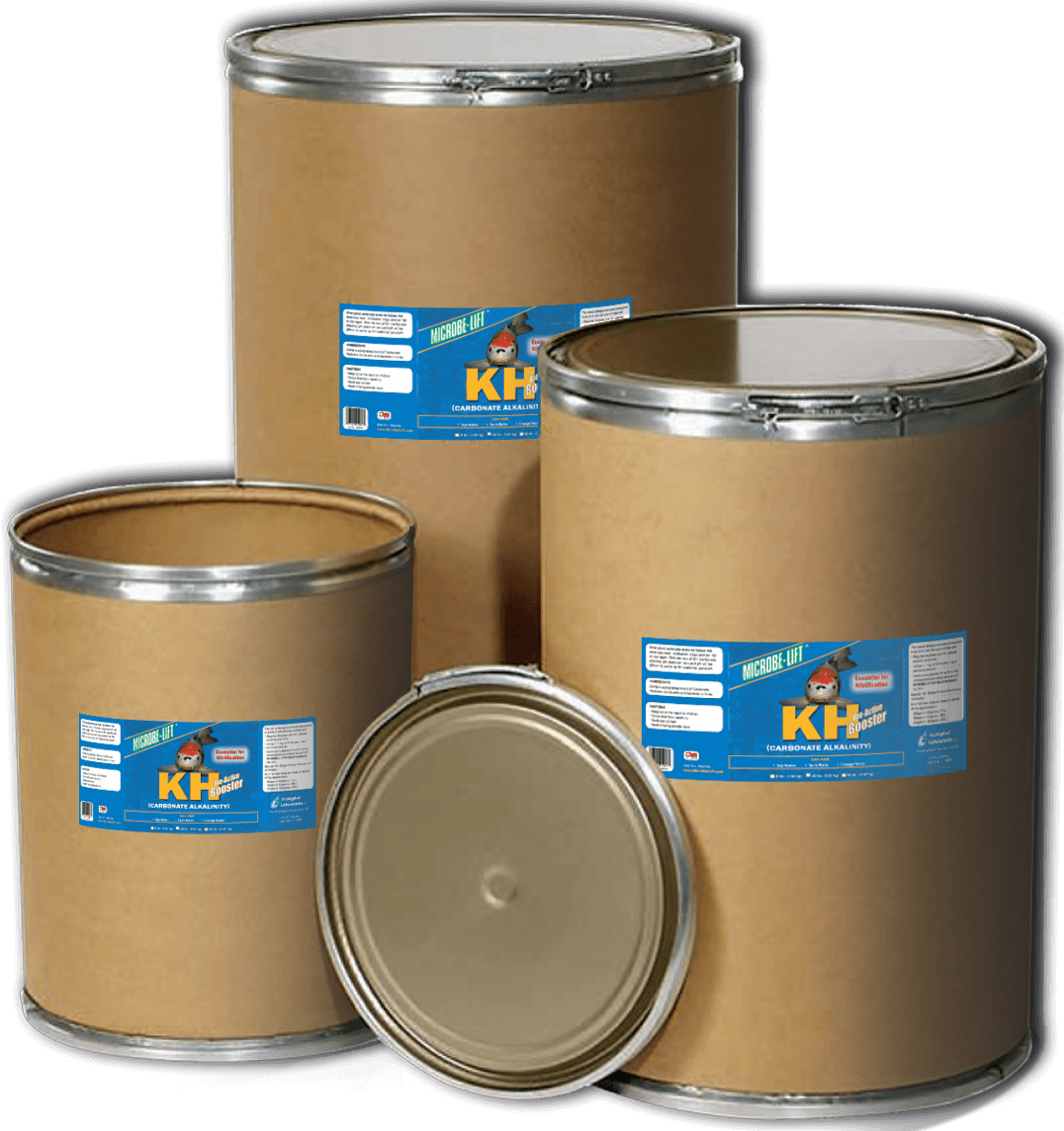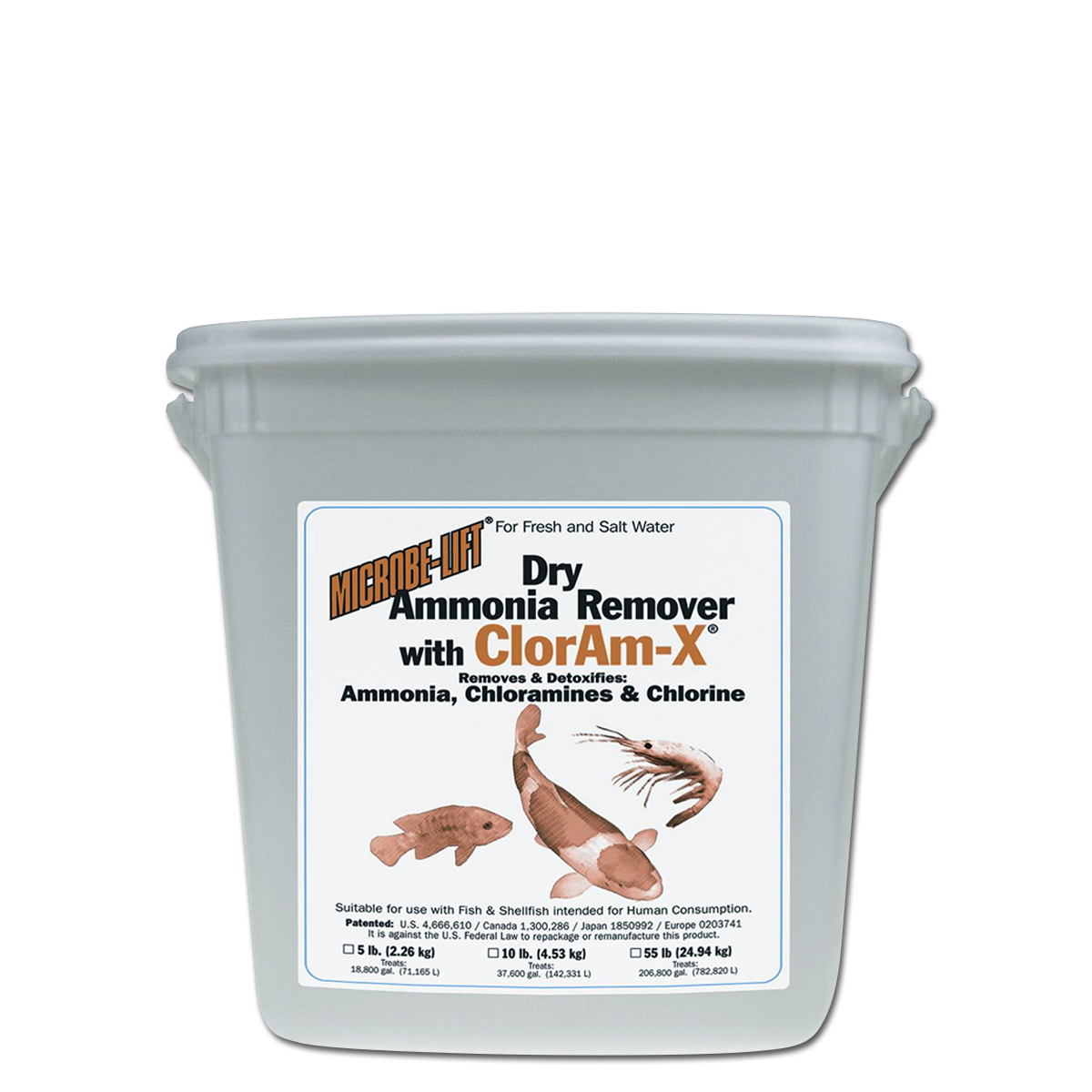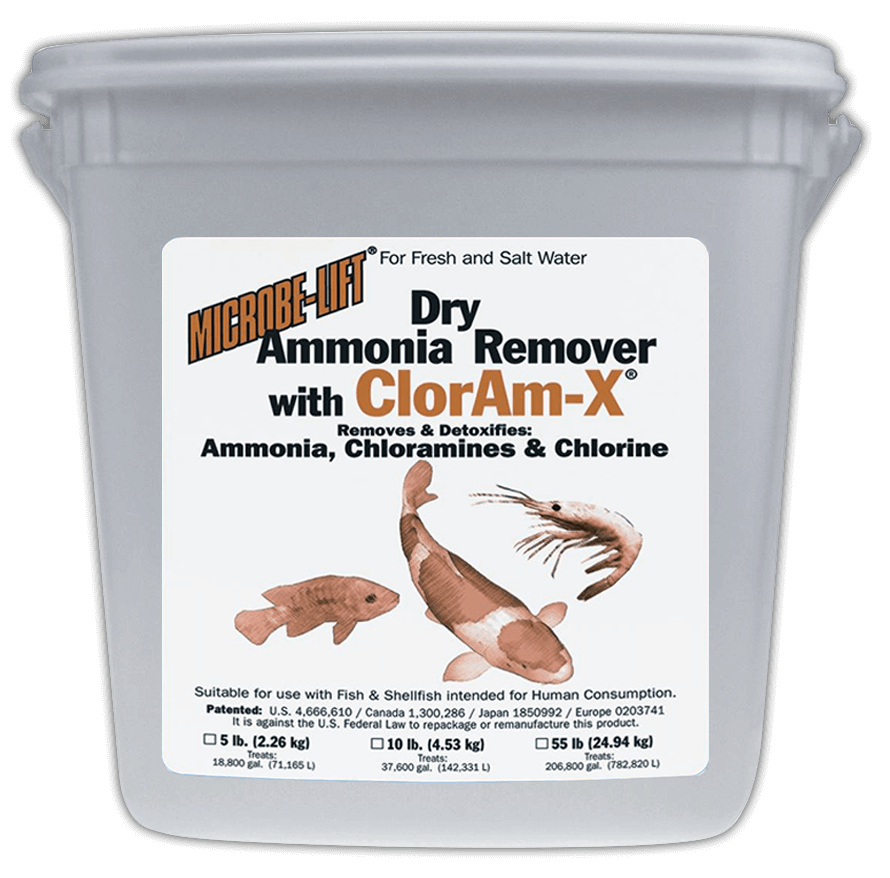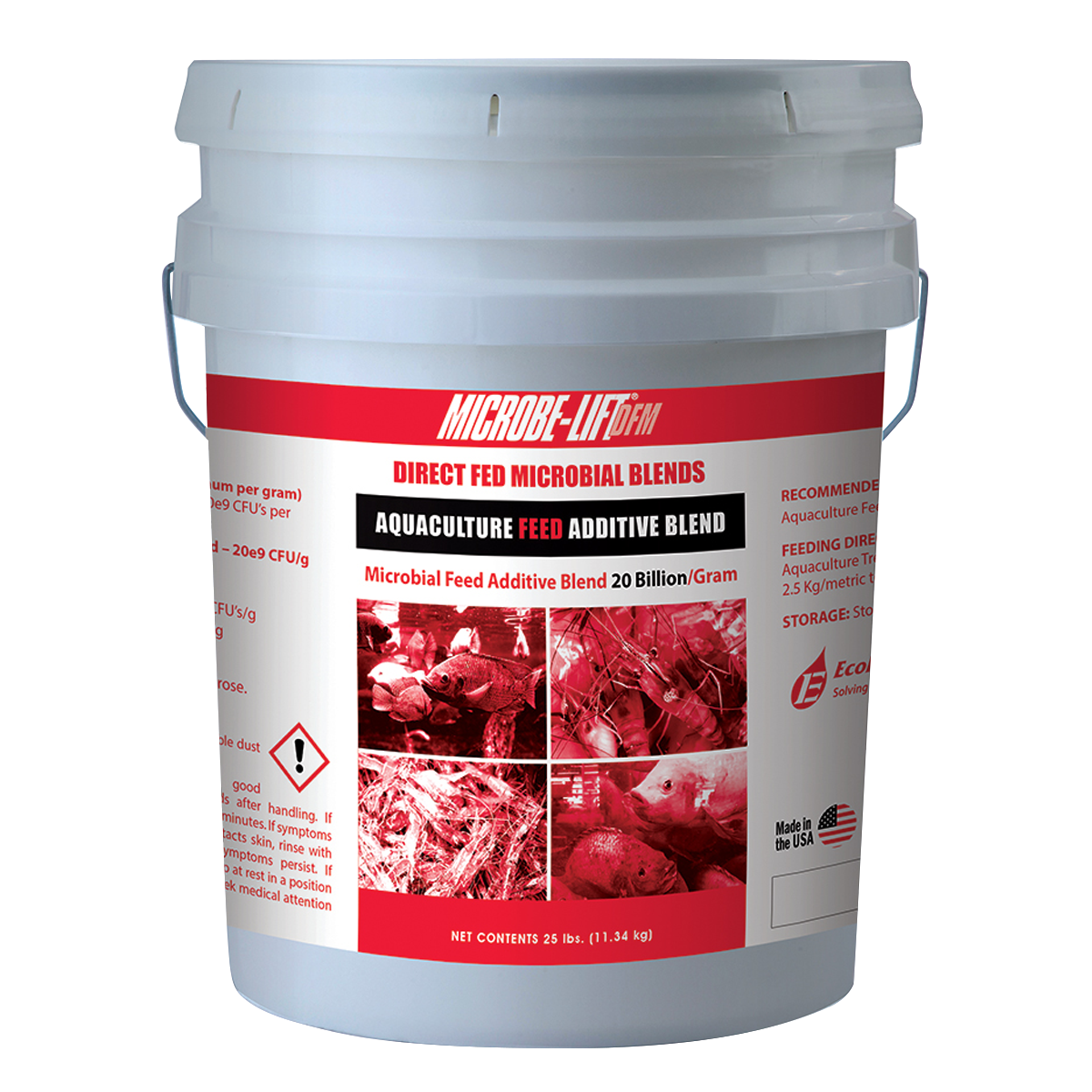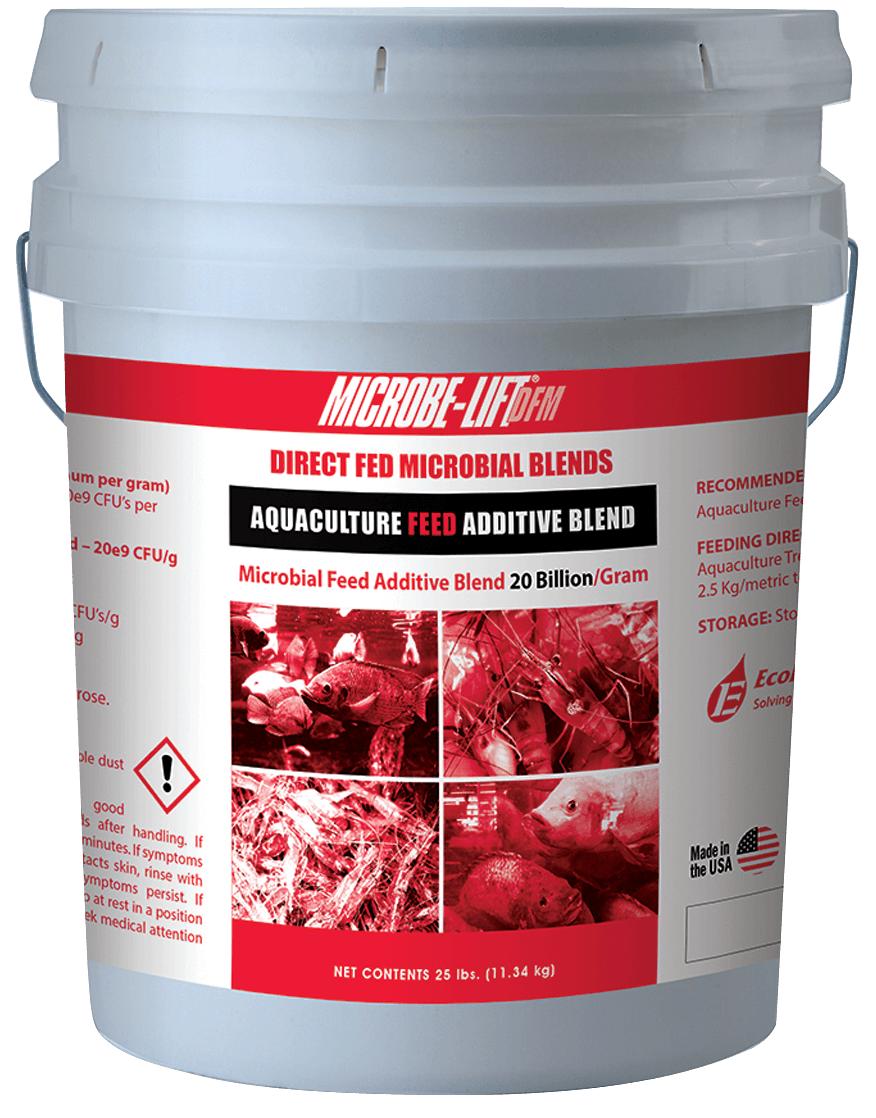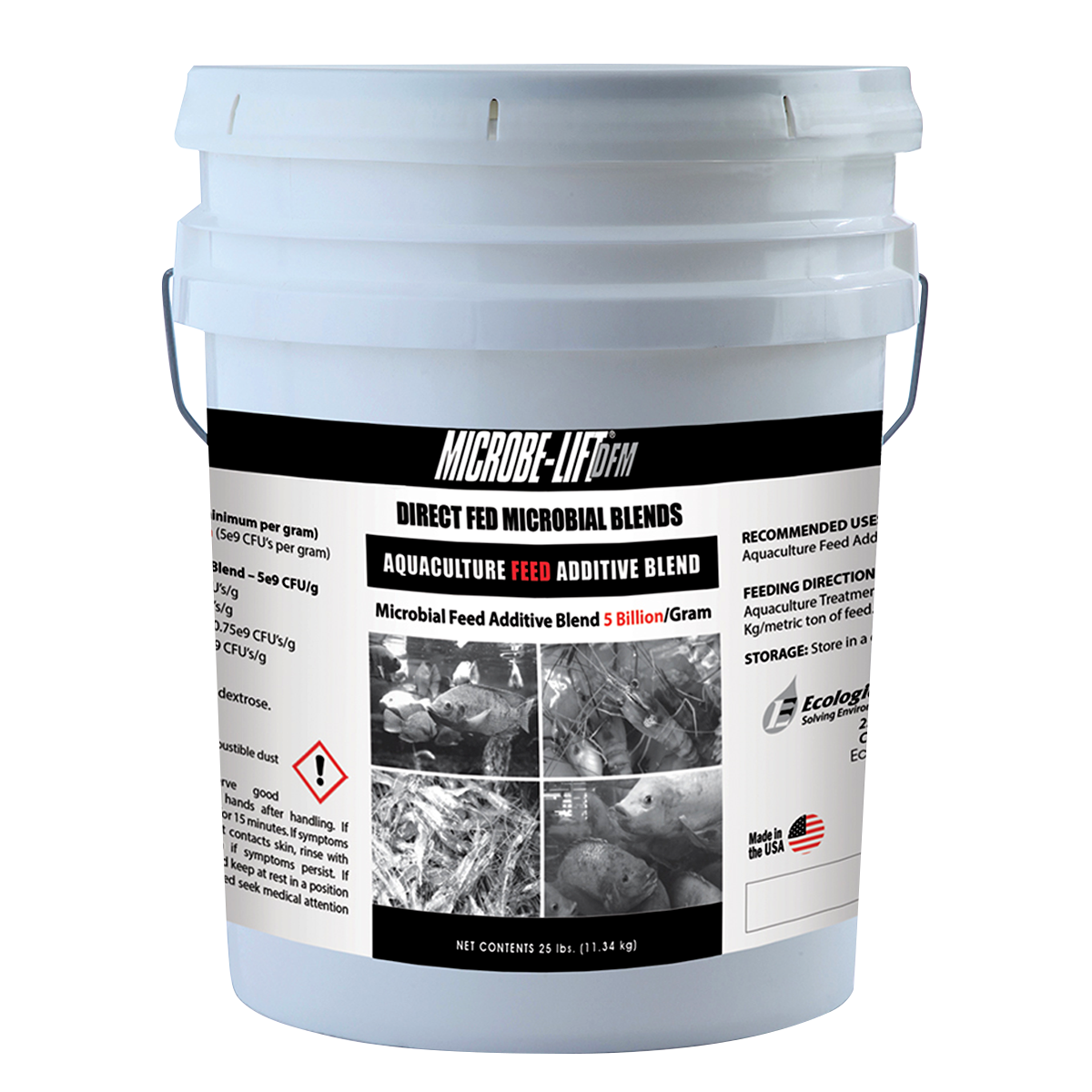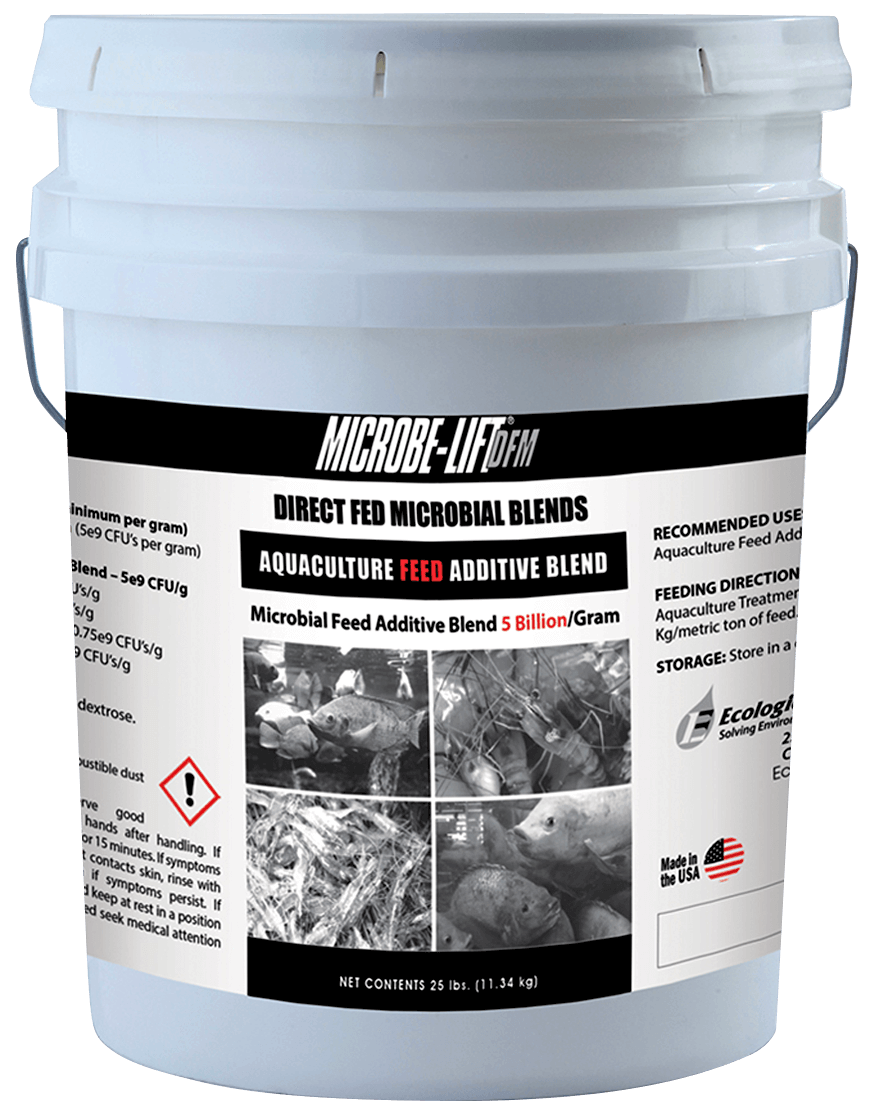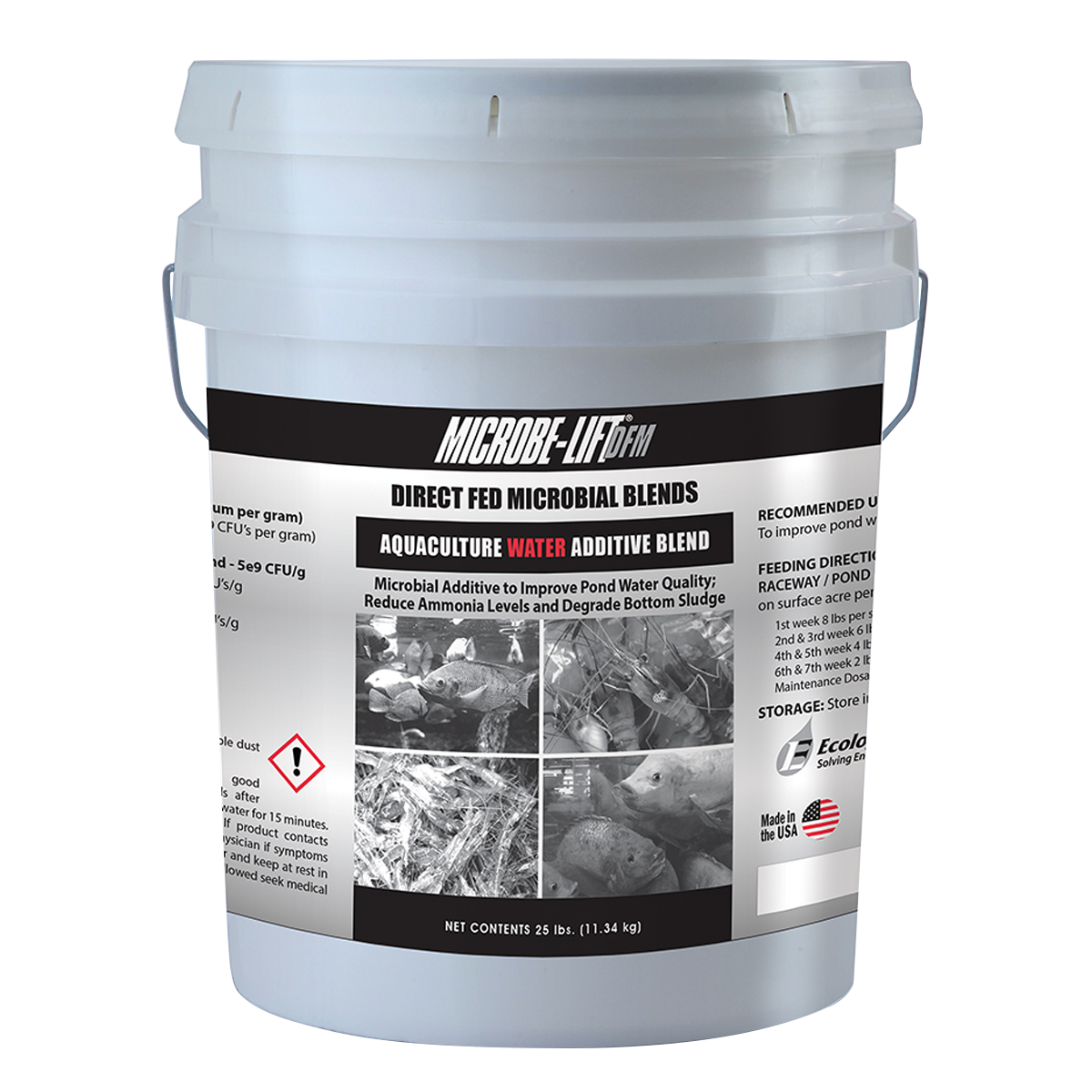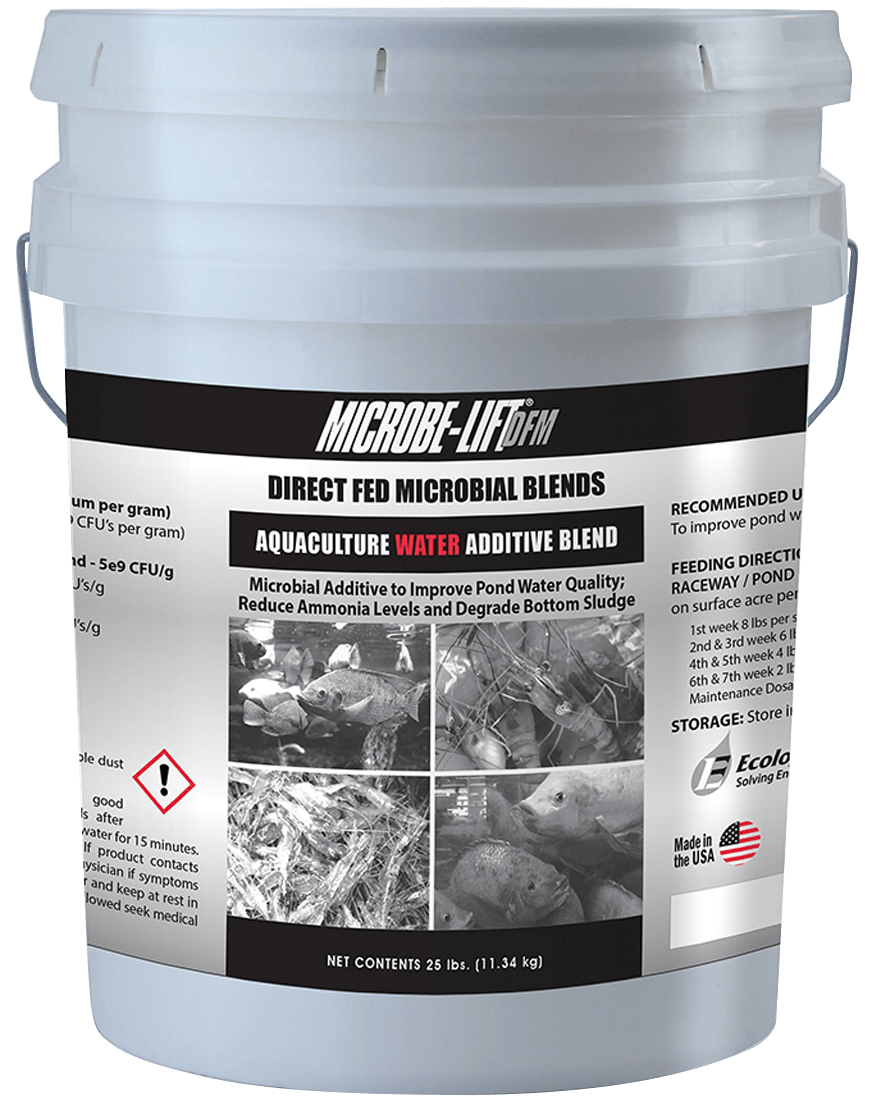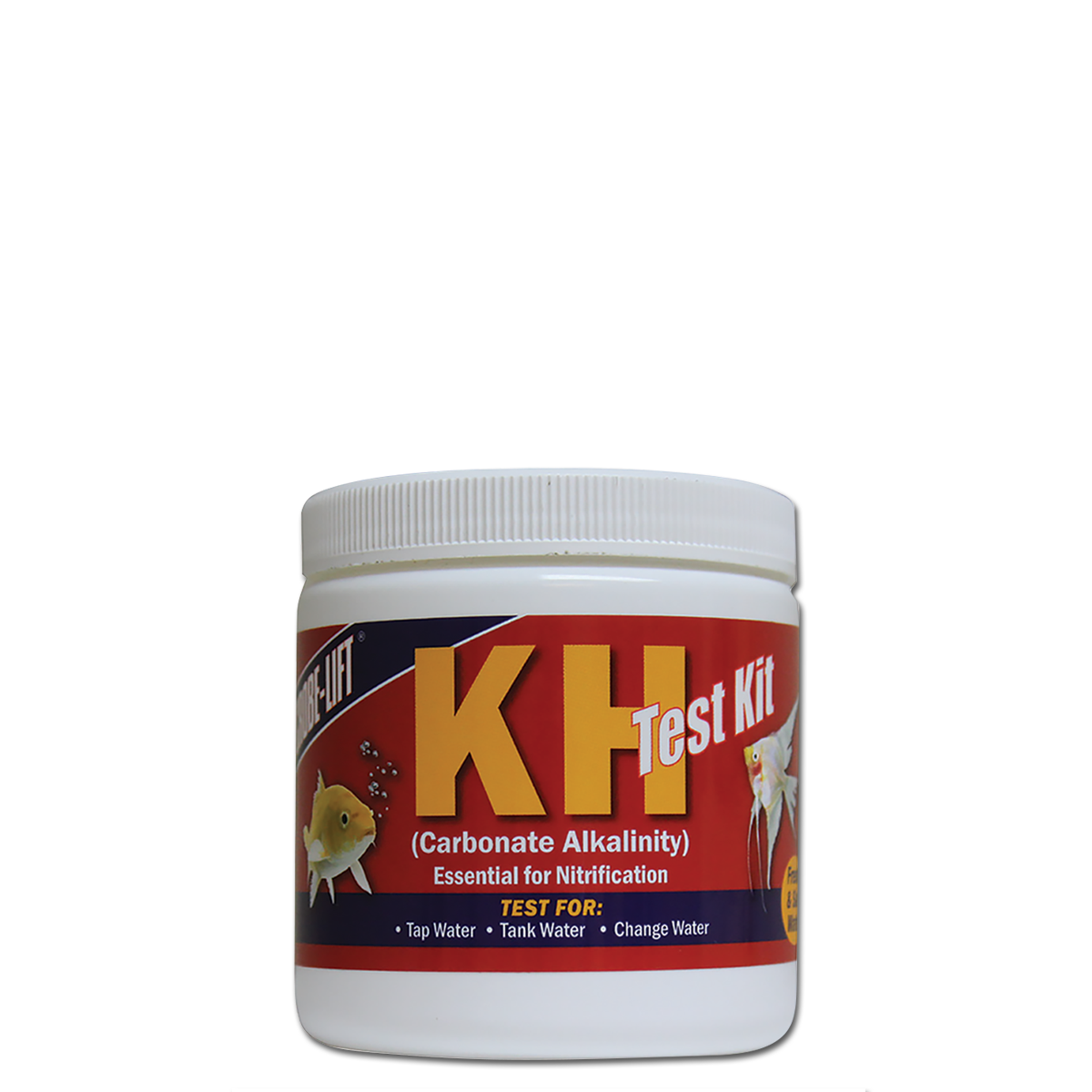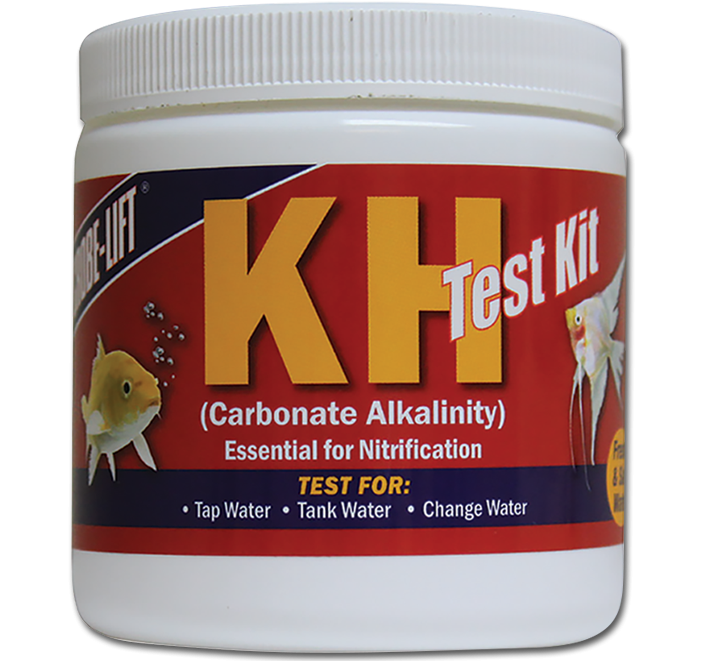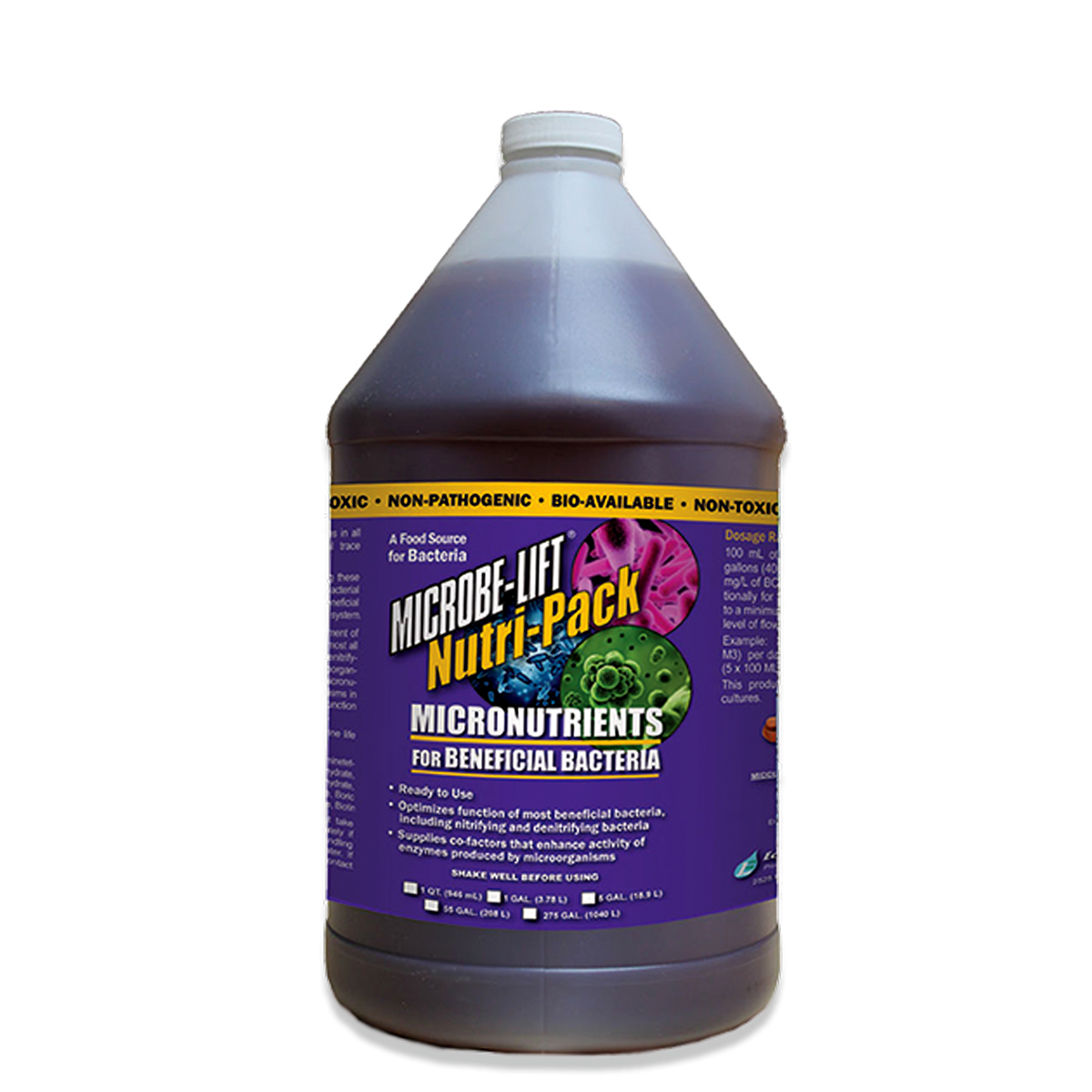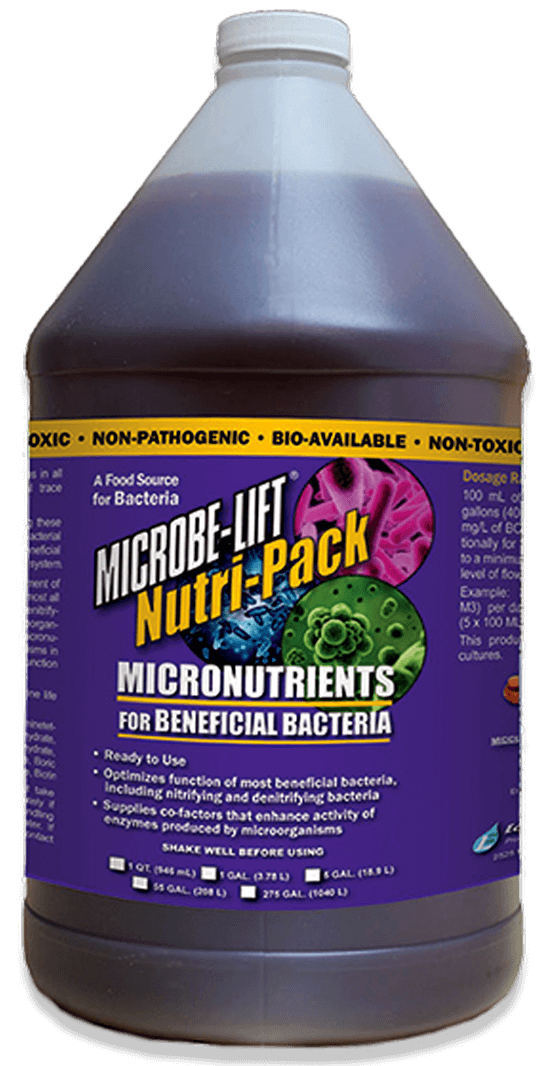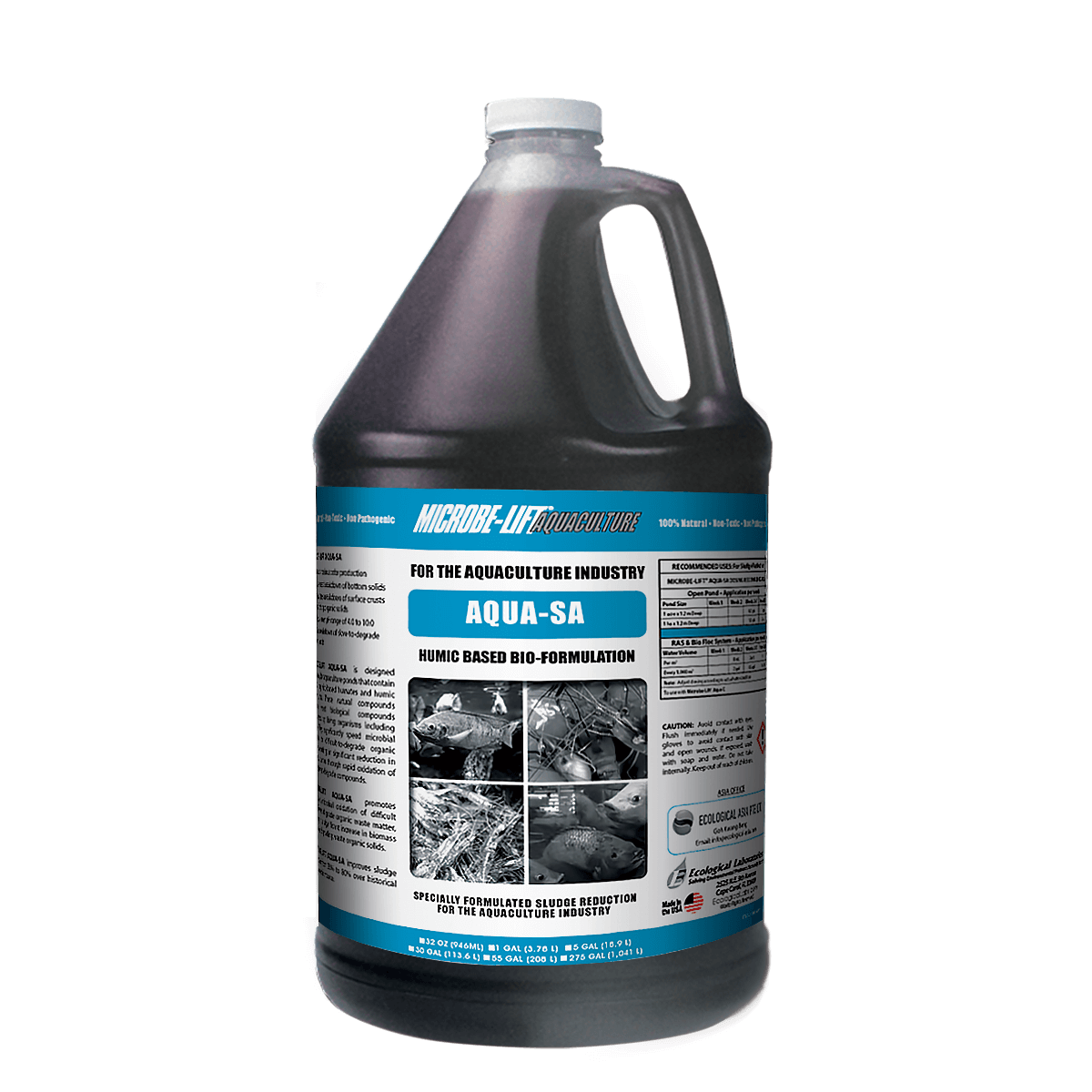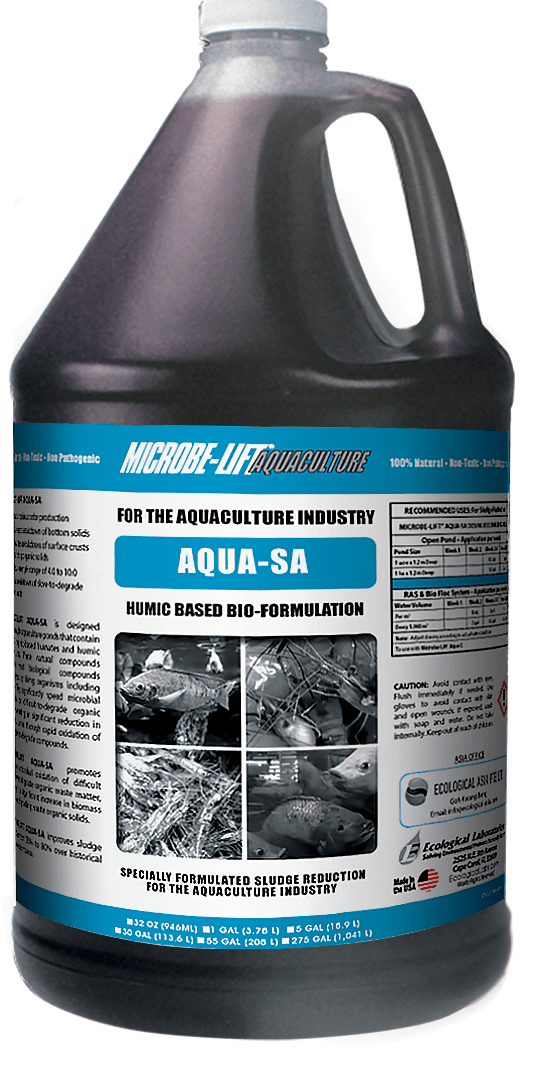The micro-organisms in MICROBE-LIFT® are non-toxic and non-pathogenic, safe for humans, animals, plants and all types of AQUATIC LIFE. Ecological Laboratories’ formulations are bacterial products, some of which may also contain enzymes and/or vital nutrients to accelerate this natural process. The MICROBE-LIFT® products represent the most environmentally compatible approach to handling common aquaculture problems.
BENEFITS
In aquaculture bioremediation, formulations act as a pro-biotic and helping the aquatic stock such as shrimp and fish to digest more efficiently thus extracting more nutrients from the feed.MICROBE-LIFT® formulas supply bacteria that can use solar energy as a driving force for growth, while using organic waste as a source of carbon and other macronutrients. Photosynthetic bacteria along with other heterotrophic organisms in MICROBE-LIFT® provide a dual benefit by purifying the water and at the same time recycling the waste as a food source. This increases yield, while reducing feed costs therefore significantly enhancing cost effectiveness of growing shrimp & fish for greater profit.
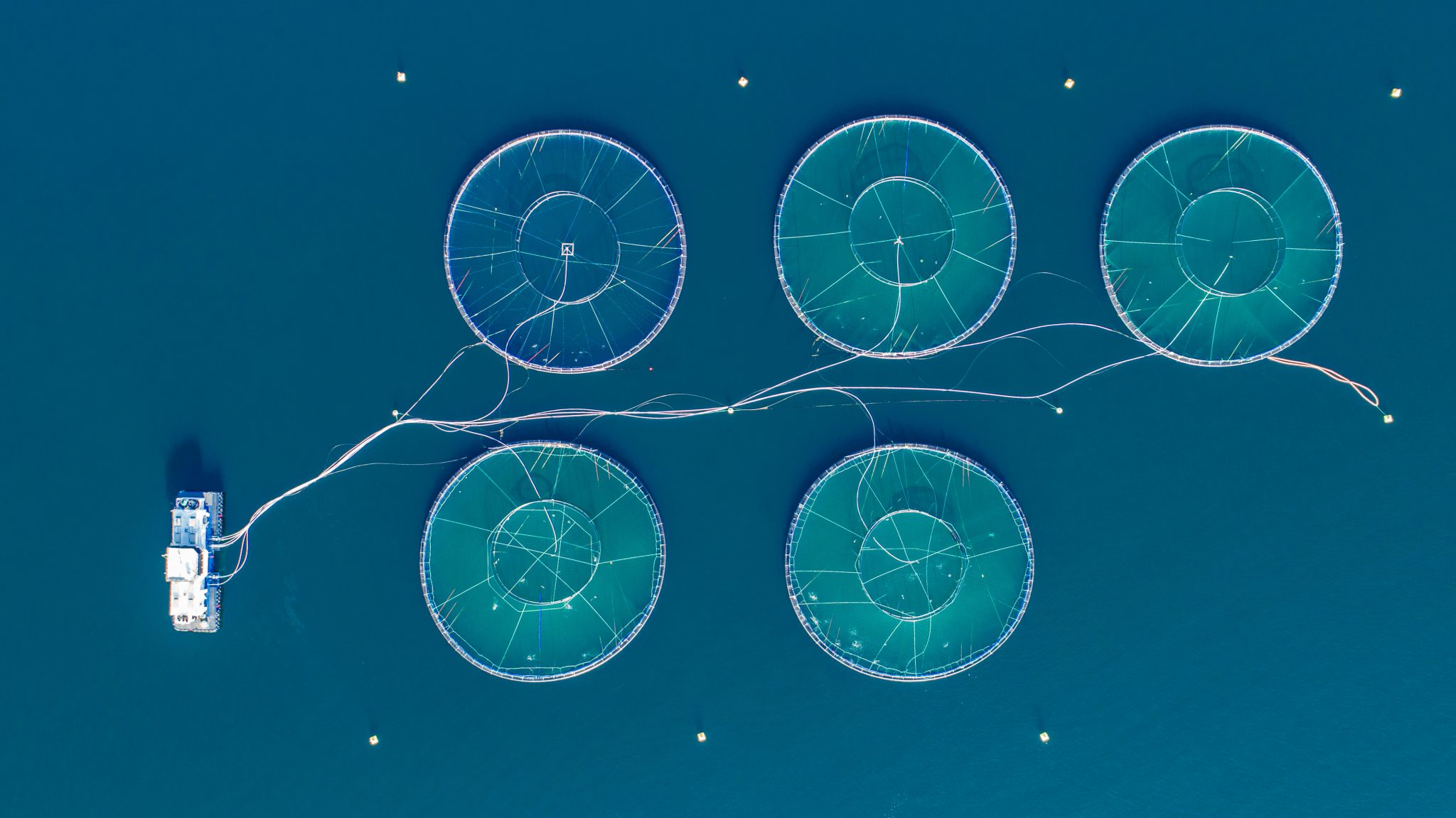
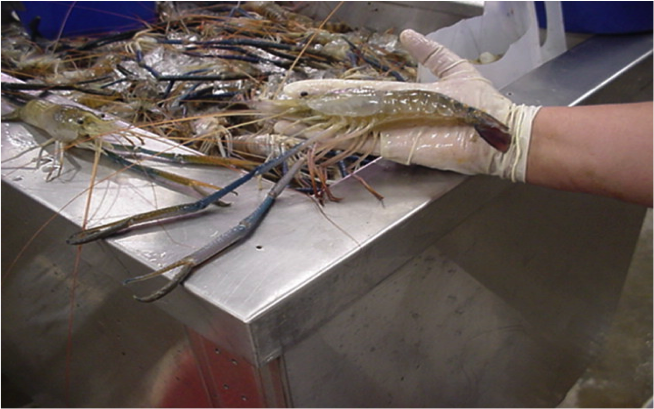
Benefits of Bio-augmentation with MICROBE-LIFT® AquaC that have been observed in Aquaculture
- More rapid and efficient nitrification
- Better biomass conversion efficiency (BCE)
- Improved breakdown of livestock waste
- Improved dissolved oxygen levels
- Significantly Faster break down of bottom solids
- Aids in establishing de-nitrification
Determining The Performance of MICROBE-LIFT® for
Shrimp Aquaculture in India

Background: High density commercial aquaculture farming of Tiger Prawn, pacific white prawn (Vannamei), Tilapia or Basa Shrimp and/or fish fecal matter, as well as leftover feed, pollutes the water in Aquaculture ponds, contributing to high nitrate and organic waste. The polluted water results in hyper-eutrophication with large quantities of decaying dead algae and organic waste from fish and/or shrimp excretion creating Tiger prawns only grow to about 12 to 15 grams in size when harvested at 4 months, but can increase to 30 to 35 grams when harvested at 6 months, which then commands a premium price which can be even more than two times the market price.
Objective:The Shrimp Farms in Surat had been using locally cultured probiotics (Bacteria) for pond treatment in their Aquaculture ponds and had been achieving satisfactory performance in water quality and shrimp yield as informed by Dr Manoj Sharma. However these probiotics/bacteria are not capable of eliminating/reducing sludge formation, a major issue faced by the farmers after the harvesting since the sludge is to be removed mechanically, which involves huge expenditure apart from the time required in doing the same and the delay in starting the next farming/crop. MICROBE-LIFT® technology is a consortium of microbes unlike the locally available probiotics that contain only few beneficial bacteria. Hence the local product is having a lower price in comparison to MICROBE-LIFT® the price of which perhaps may be felt costly to use.
Key objective of the trial was to evaluate the effectiveness of MICROBE-LIFT® in the following segments.
- Maintaining the ecological balance by reducing organic waste and eliminating bottom sludge
- Reducing non-beneficial bacteria and diseases through Pro-Biotic effect
- Increasing growth rate & reducing mortality
- Achieving larger prawn at harvest, commanding much higher market price
- Allowing for a higher density and lower mortality resulting in higher yield
- Reducing feed conversion ratio (FCR)- saving on feed cost
- Reducing the rate of water changes- providing for a clean environment
- Eliminating bad odor in the water, avoiding a soil smell in fish and prawns
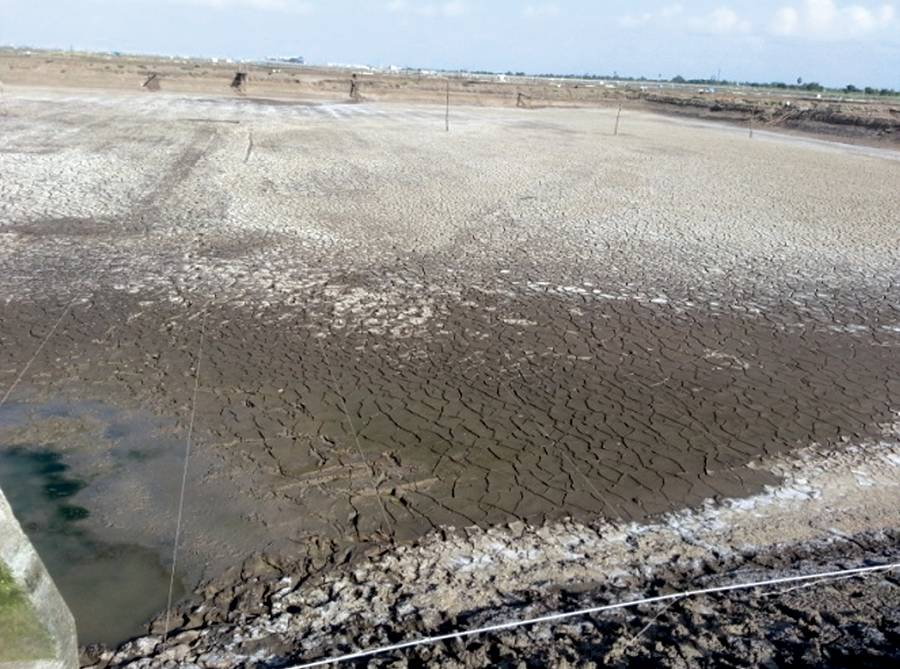
Control Pond After Harvest (Sludge)
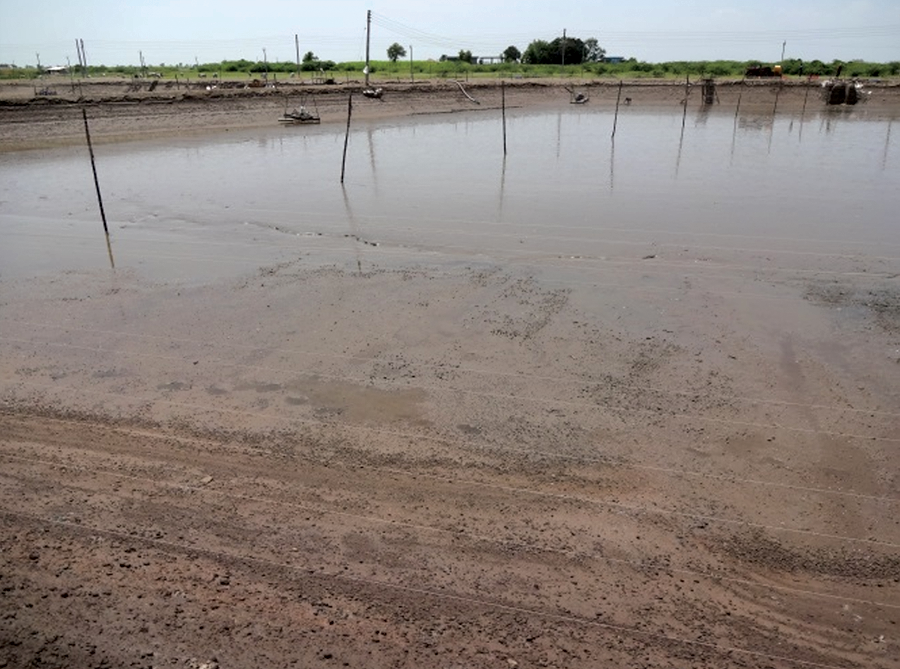
Treated Pond After Harvest (No Sludge)
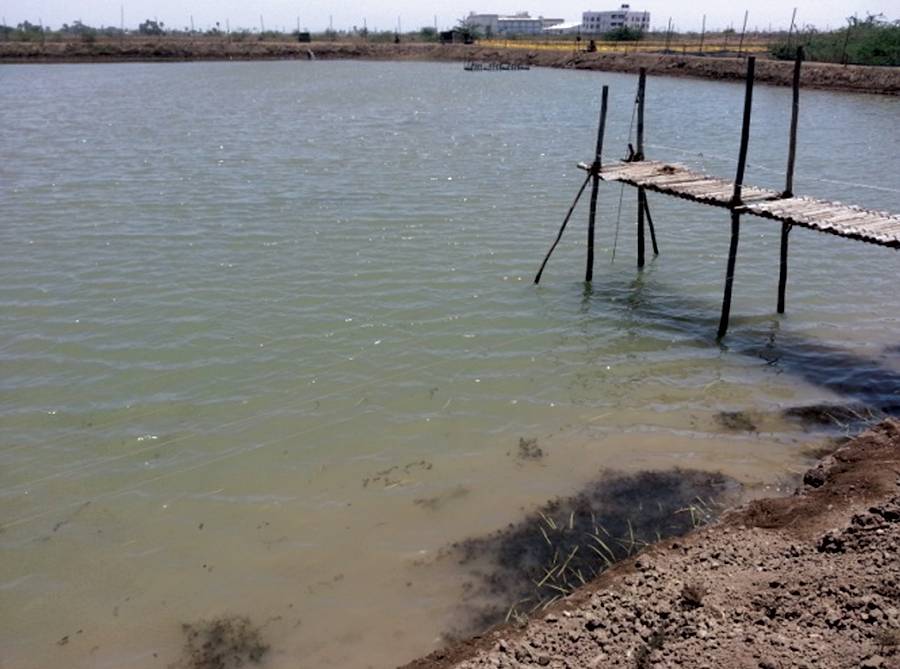
Control Pond
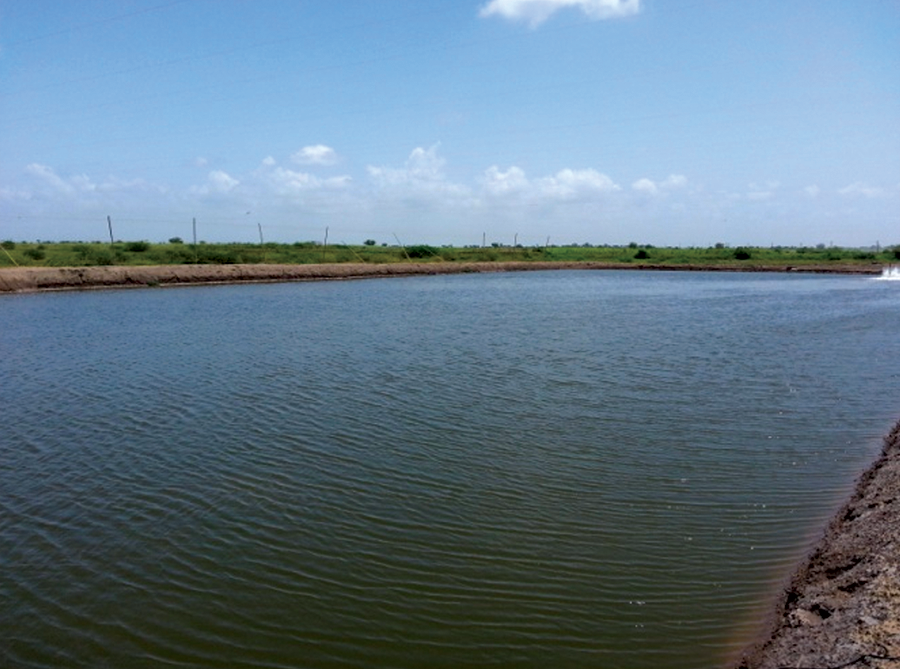
Treated Pond
Results: The actual dosing and various parameter measurements for the 6 ponds
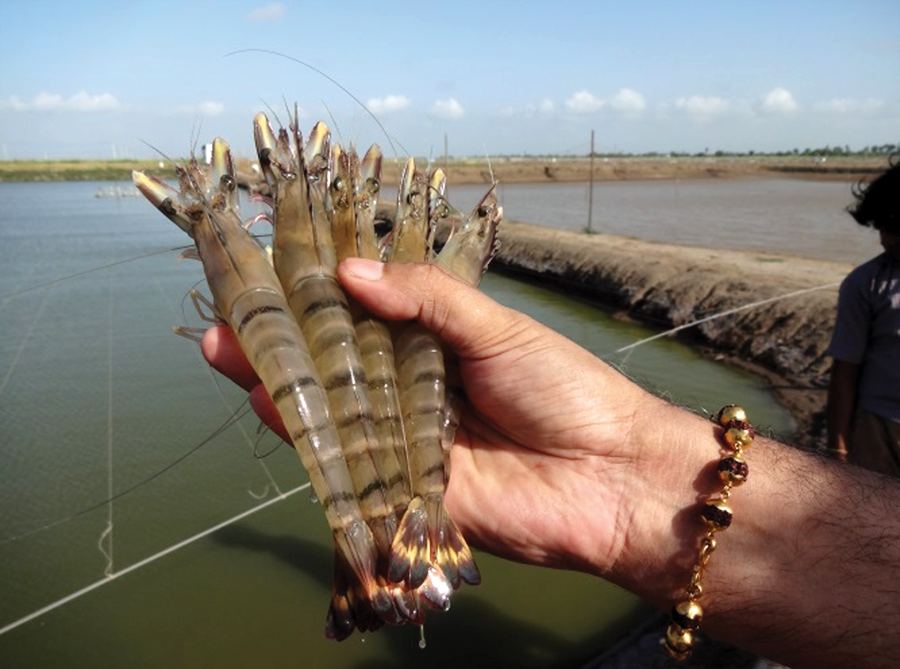
are tabulated in appendix 1. The shrimp harvest was done from 1st week of Aug 2013 onwards. The water quality of both Vannami and Tiger ponds were found to be of good quality. The sludge formation was nil/negligible. Dr Sharma
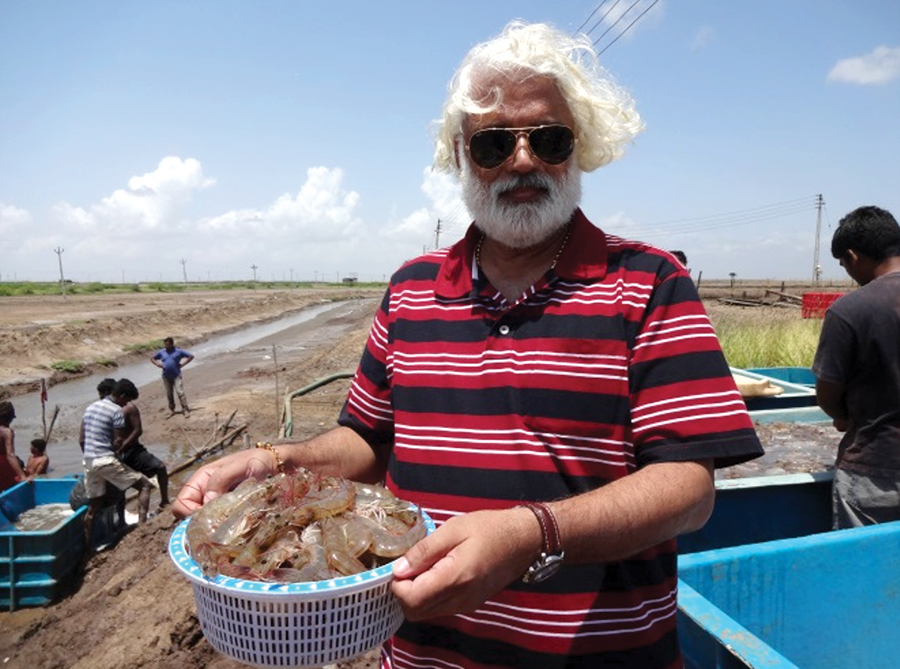
is extremely happy with the trial results. At the time he was perhaps under the impression that it is yet another probiotic. However, the results from the trial ponds compelled him to conclude that MICROBE-LIFT® is not yet another simple probiotic. The results according to Dr Manoj Sharma are praiseworthy with respect to the following:
- Yield is improved
- No increase in mortality despite higher stocking density
- There is no sludge at all
- Absolutely no smell from the pond after draining the entire water while harvesting
- Above all the size of the shrimp is very large, both Vannamie and Tiger (32 gms and above per shrimp)
- The taste and quality of the shrimp is improved
- The color of the Vannami shrimps are found to golden brown, which otherwise is more or less white in color
MICROBE-LIFT® Technology Increases Yield & Size of Shrimp test
Background: The increase in popularity of freshwater shrimp (Macrobrachium Rosenbergii) production has prompted researchers to develop better and more efficient production methods. The current production methods are sufficient to justify the growing of freshwater shrimp. However, to stay competitive long term in the market place, producers will have to increase yields and reduce costs. The small and medium size growers cannot compete with current production costs. Globalization will continue to put downward pressure on market prices, so production costs must be reduced and efficiency improved in order for the farmer to maintain profitability. The aquaculture instructors at Mississippi Gulf Coast Community College in Southeastern United States found that products used in aquaculture applications for improved water quality also may increase growth and survival of shrimp.
Objective: The purpose of the study was to see if shrimp production could be improved using the MICROBE-LIFT® formulation. Two ponds were used in the study and both ponds were stocked with juvenile freshwater shrimp. One pond was treated with MICROBE-LIFT® formulation in accordance with the manufacturer’s recommendations, while a second pond was kept as a control. Dissolved oxygen and temperature were measured once per day, and pH, alkalinity and hardness were measured once per week using industry standard methods. Shrimp were sampled periodically by seine and feed rates were adjusted using sample results. Both ponds received continuous aeration using Aerolator brand surface aerators and were stopped only when students entered the ponds for sampling.
Results: The results of this study strongly indicate that MICROBE-LIFT® probiotic effects increased total production and average size of pond-raised shrimp while improving feed conversion and reducing production costs. Further research by a research institution would be justified by the results of this study.
